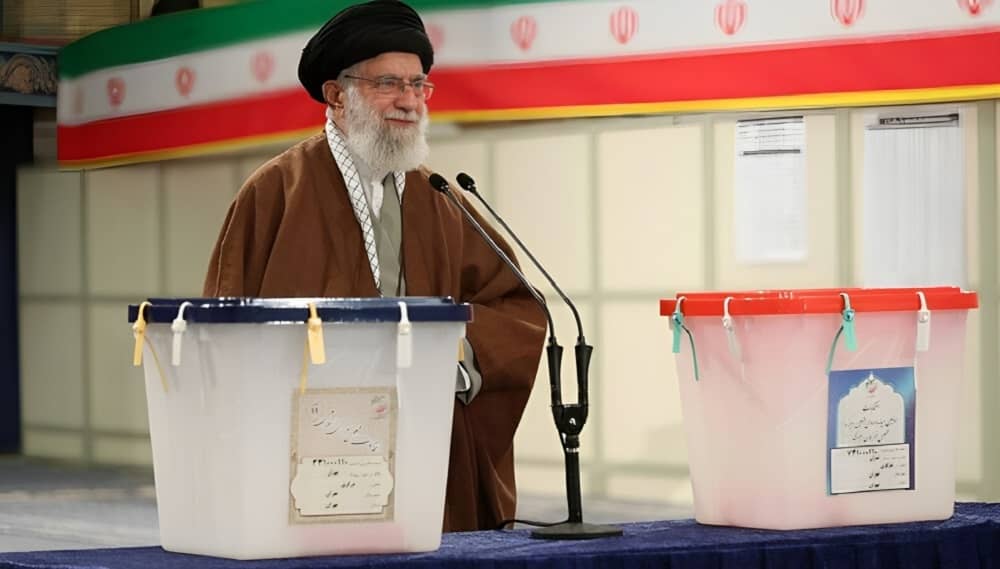
Despite his assertions, observers have discerned Khamenei’s preparations for an extensive purge of the parliament, raising questions about the upcoming parliamentary elections scheduled for March 1, 2024.
Khamenei’s plea for high voter turnout contrasts with warnings of a nationwide boycott issued by officials from previous governments, parliaments, and rival factions, reflecting a growing disillusionment among the populace. Former Minister of Labor Ali Rabiee highlighted a significant decline in participation levels, citing a survey indicating that only 32% of the population is likely to participate in the upcoming elections.
As media outlets aligned with the Raisi government intensify efforts to boost turnout, conflicts among leaders of the three branches gain prominence in state-controlled media. The parliamentary elections, coinciding with the “Assembly of Experts on Leadership” elections, are pivotal for determining the future Supreme Leader and the fate of the regime, given Ali Khamenei’s age and health condition.
#Iran News in Brief
Predicting that voter turnout in the upcoming parliamentary sham #elections will be less than 10 percent, Ahmad Zeydabadi, a state-affiliated analyst warned against the ultimate decline of the clerical regime.
Read more:https://t.co/vjvoqBul9K pic.twitter.com/opLkeZuiN8— NCRI-FAC (@iran_policy) August 12, 2023
The reported turnout of 42.57% in the previous parliamentary elections was one of the lowest in four decades, reflecting a diminishing and precarious support base for Khamenei’s leadership. His strategy of consolidating power by purging rivals has led to challenges in rallying support and suppressing dissent, setting the stage for potential upheaval.
Amid indications that various parties aligned with former presidents Mohammad Khatami and Hassan Rouhani might not nominate candidates, Rouhani’s decision to run for the Assembly of Experts elections despite threats from the ruling faction adds an intriguing dimension. Rouhani, cautioning that not voting is a form of voting, suggests a nuanced approach to the electoral process.
#Iran News in Brief
A former member of the Iranian regime’s parliament expressed concerns about the upcoming parliamentary sham #elections, stating that a significant portion of the population has lost faith in the system and no longer believes in anything except for regime… pic.twitter.com/M9MdBXfl31— NCRI-FAC (@iran_policy) September 3, 2023
The backdrop of the 2022 uprising, marked by widespread protests calling for the overthrow of the clerical dictatorship, underscores the challenges faced by Khamenei’s regime. Despite public appeals and positioning for further purges, may face resistance in the form of another uprising, challenging the delicate balance between democracy and authoritarianism in Iran. As the nation approaches the elections, the stage is set for a political reckoning that could reshape the future of the Iranian regime.

MEK Iran (follow us on Twitter and Facebook), Maryam Rajavi’s on her site, Twitter & Facebook, NCRI (Twitter & Facebook), and People’s Mojahedin Organization of Iran – MEK IRAN – YouTu







